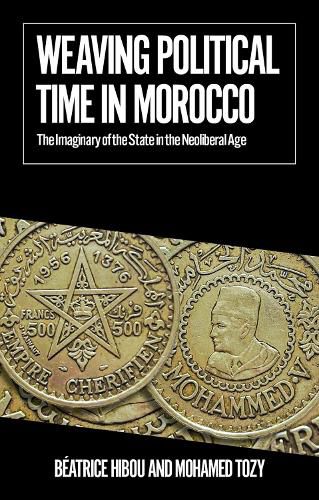Readings Newsletter
Become a Readings Member to make your shopping experience even easier.
Sign in or sign up for free!
You’re not far away from qualifying for FREE standard shipping within Australia
You’ve qualified for FREE standard shipping within Australia
The cart is loading…






Analyses of state power in Morocco have always been mired in exoticism or exceptionalism. The Kingdom is said to be a prototype of political immobility; a country caught in the authoritarian and conservative grip of its monarch, known as the 'Commander of the Faithful'; a state in need of democratisation, but also a bastion of moderate Islam.
Drawing on thirty years of fieldwork, interviews and extensive primary documentation, Beatrice Hibou and Mohamed Tozy reveal how demographic, political and cultural changes have transformed Morocco's government and modes of domination, from its pre-colonial past to the present. Interrogating the ideas of 'Empire' and 'Nation-state' as particular forms of rule, they examine the legacy of the centuries-long Sharifian Empire, in relation to the contemporary neoliberal government. They show how imperial traditions and the modern state co-exist today, in an intricate tapestry of seemingly contradictory power relations, different understandings of legitimacy, and competing visions of authority, sovereignty and responsibility.
Drawing on the work of Max Weber and Michel Foucault, Weaving Political Time in Morocco is a comprehensive, comparative examination of the evolution and continuities of state power in this complex North African country.
$9.00 standard shipping within Australia
FREE standard shipping within Australia for orders over $100.00
Express & International shipping calculated at checkout
Analyses of state power in Morocco have always been mired in exoticism or exceptionalism. The Kingdom is said to be a prototype of political immobility; a country caught in the authoritarian and conservative grip of its monarch, known as the 'Commander of the Faithful'; a state in need of democratisation, but also a bastion of moderate Islam.
Drawing on thirty years of fieldwork, interviews and extensive primary documentation, Beatrice Hibou and Mohamed Tozy reveal how demographic, political and cultural changes have transformed Morocco's government and modes of domination, from its pre-colonial past to the present. Interrogating the ideas of 'Empire' and 'Nation-state' as particular forms of rule, they examine the legacy of the centuries-long Sharifian Empire, in relation to the contemporary neoliberal government. They show how imperial traditions and the modern state co-exist today, in an intricate tapestry of seemingly contradictory power relations, different understandings of legitimacy, and competing visions of authority, sovereignty and responsibility.
Drawing on the work of Max Weber and Michel Foucault, Weaving Political Time in Morocco is a comprehensive, comparative examination of the evolution and continuities of state power in this complex North African country.